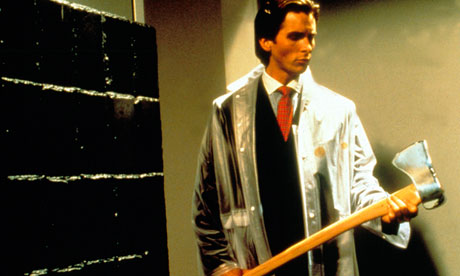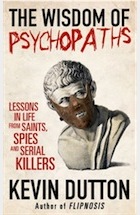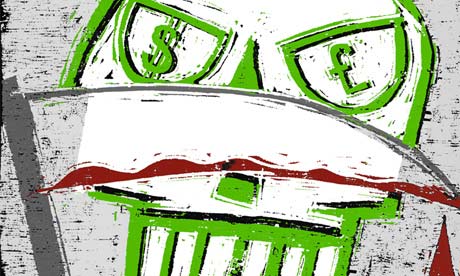‘Toxic personalities thrive in toxic environments.’ John Bercow (centre) mediates during a Commons debate on the EU withdrawal bill. Photograph: Mark Duffy/AFP/Getty Images
Who in their right mind would want the job? It is almost certain to end, as Theresa May found, in failure and public execration. To seek to be prime minister today suggests either reckless confidence or an insatiable hunger for power. Perhaps we need a reverse catch-22 in British politics: anyone crazy enough to apply for this post should be disqualified from running.
A few years ago, the psychologist Michelle Roya Rad listed the characteristics of good leadership. Among them were fairness and objectivity; a desire to serve society rather than just yourself; a lack of interest in fame and attention; and resistance to the temptation to hide the truth or make impossible promises. Conversely, a paper in the Journal of Public Management and Social Policy has listed the characteristics of leaders with psychopathic, narcissistic or Machiavellian personalities. These include: a tendency to manipulate others; a preparedness to lie and deceive to achieve your ends; a lack of remorse and sensitivity; and a desire for admiration, attention, prestige and status. Which of these lists, do you think, best describes the people vying to lead the Conservative party?
In politics, almost everywhere we see what looks like the externalisation of psychic wounds or deficits. Sigmund Freud claimed that “groups take on the personality of the leader”. I think it would be more accurate to say that the private tragedies of powerful people become the public tragedies of those they dominate. For some people, it is easier to command a nation, to send thousands to their deaths in unnecessary wars, to separate children from their families and inflict terrible suffering, than to process their own trauma and pain. What we appear to see in national politics around the world is a playing out in public of deep private distress.
This could be a particularly potent force in British politics. The psychotherapist Nick Duffell has written of “wounded leaders”, who were separated from their families in early childhood when they were sent to boarding school. They develop a “survival personality”, learning to cut off their feelings and project a false self, characterised by a public display of competence and self-reliance. Beneath this persona is a profound insecurity, which might generate an insatiable need for power, prestige and attention. The result is a system that “consistently turns out people who appear much more competent than they actually are”.
The problem is not confined to these shores. Donald Trump occupies the most powerful seat on Earth, yet still he appears to seethe with envy and resentment. “If President Obama made the deals that I have made,” he claimed this week, “the corrupt media would be hailing them as incredible … With me, despite our record-setting economy and all that I have done, no credit!” No amount of wealth or power seems able to satisfy his need for affirmation and assurance.
Those who should be least trusted with power are most likely to win it
Who in their right mind would want the job? It is almost certain to end, as Theresa May found, in failure and public execration. To seek to be prime minister today suggests either reckless confidence or an insatiable hunger for power. Perhaps we need a reverse catch-22 in British politics: anyone crazy enough to apply for this post should be disqualified from running.
A few years ago, the psychologist Michelle Roya Rad listed the characteristics of good leadership. Among them were fairness and objectivity; a desire to serve society rather than just yourself; a lack of interest in fame and attention; and resistance to the temptation to hide the truth or make impossible promises. Conversely, a paper in the Journal of Public Management and Social Policy has listed the characteristics of leaders with psychopathic, narcissistic or Machiavellian personalities. These include: a tendency to manipulate others; a preparedness to lie and deceive to achieve your ends; a lack of remorse and sensitivity; and a desire for admiration, attention, prestige and status. Which of these lists, do you think, best describes the people vying to lead the Conservative party?
In politics, almost everywhere we see what looks like the externalisation of psychic wounds or deficits. Sigmund Freud claimed that “groups take on the personality of the leader”. I think it would be more accurate to say that the private tragedies of powerful people become the public tragedies of those they dominate. For some people, it is easier to command a nation, to send thousands to their deaths in unnecessary wars, to separate children from their families and inflict terrible suffering, than to process their own trauma and pain. What we appear to see in national politics around the world is a playing out in public of deep private distress.
This could be a particularly potent force in British politics. The psychotherapist Nick Duffell has written of “wounded leaders”, who were separated from their families in early childhood when they were sent to boarding school. They develop a “survival personality”, learning to cut off their feelings and project a false self, characterised by a public display of competence and self-reliance. Beneath this persona is a profound insecurity, which might generate an insatiable need for power, prestige and attention. The result is a system that “consistently turns out people who appear much more competent than they actually are”.
The problem is not confined to these shores. Donald Trump occupies the most powerful seat on Earth, yet still he appears to seethe with envy and resentment. “If President Obama made the deals that I have made,” he claimed this week, “the corrupt media would be hailing them as incredible … With me, despite our record-setting economy and all that I have done, no credit!” No amount of wealth or power seems able to satisfy his need for affirmation and assurance.
Those who should be least trusted with power are most likely to win it
I believe that anyone who wants to stand in a national election should receive a course of psychotherapy. Completing the course should be a qualification for office. This wouldn’t change the behaviour of psychopaths, but it might prevent some people who exercise power from imposing their own deep wounds on others. I’ve had two courses: one influenced by Freud and Donald Winnicott, the other by Paul Gilbert’s compassion-focused approach. I found them both immensely helpful. I believe almost everyone would benefit from such treatment.
The underlying problem is the system through which such people jostle. Toxic personalities thrive in toxic environments. Those who should be least trusted with power are most likely to win it. A study in the Journal of Personality and Social Psychology suggests that the group of psychopathic traits known as “fearless dominance” is associated with behaviours that are widely valued in leaders, such as making bold decisions and bestriding the world stage. If so, we surely value the wrong characteristics. If success within the system requires psychopathic traits, there is something wrong with the system.
In designing an effective politics, it could be useful to work backwards: to decide what kind of people we would like to see representing us, then create a system that would bring them to the fore. I want to be represented by people who are thoughtful, self-aware and collaborative. What would a system that elevated such people look like?
It would not be a purely representative democracy. This works on the principle of presumed consent: “You elected me three years ago, therefore you are presumed to have consented to the policy I’m about to implement, whether or not I mentioned it at the time.” It rewards the “strong, decisive” leaders who so often lead their nations to catastrophe. A system that tempers representative democracy with participative democracy – citizens’ assemblies, participatory budgeting, the co-creation of public policy – is more likely to reward responsive and considerate politicians. Proportional representation, which prevents governments with minority support from dominating the nation, is another potential safeguard – though no guarantee.
In rethinking politics, let us develop systems that encourage kindness, empathy and emotional intelligence. Let us ditch systems that encourage people to hide their pain by dominating others.







